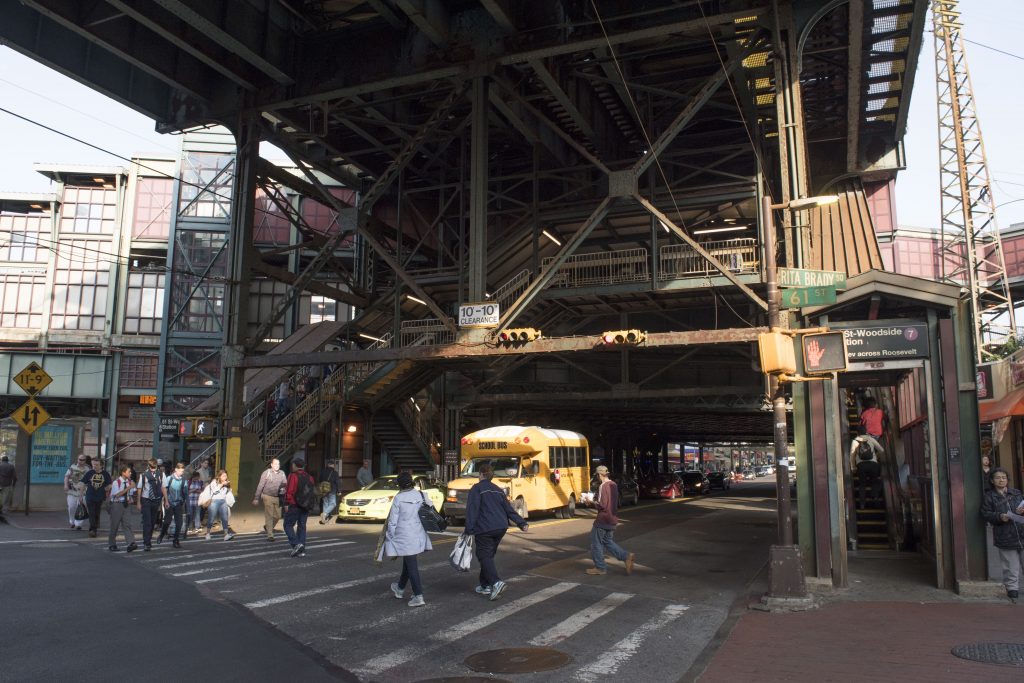July 23, 2019, Jackie Strawbridge
The MTA will install netting under elevated train tracks in four locations throughout Queens and Manhattan, including under the 61st Street-Woodside 7 train station, following several incidents of debris falling from tracks onto the roads below.
The new nets are part of a pilot program to test “whether and how the material may capture potential hazards such as loose debris while still allowing regular inspections of the structure,” the MTA said in a statement.
NYC Transit President Andy Byford announced the netting installation plans at a Long Island City town hall last month, but didn’t specify their locations at that time.
Installation at the 7 train location begins this week. The netting will be approximately 600 feet long and 50 feet wide, for a total of 30,000 square feet of coverage. According to an MTA spokesperson, there is no set timeframe on how long the pilot program would last.
Falling debris from elevated subway lines has been a persistent problem throughout the past several months. In one incident that garnered lots of attention in February, a large piece of wood fell from the 7 train tracks near 65th Street and pierced a parked car’s windshield, just missing the driver.
The new netting is designed to capture even very small items, while still transparent enough for the MTA to conduct visual inspections, the agency said. It is being tested at the 61st Street-Woodside station in particular because of its age, elevation and exposure to weather conditions, all of which make it more susceptible to deterioration, according to the MTA.
“We are encouraged by the possible viability and off-the-shelf availability of this netting to provide peace of mind to those who traverse streets below our tracks, and will continue our rigorous inspections of these structures, which are often struck by vehicles and exposed to highly varying conditions year-round that can speed deterioration,” Byford said in a statement.
Councilman Jimmy Van Bramer, who has called on the MTA to install netting under the 7 train as a result of the falling debris, said he wants to see more of it in the area.
“While I am glad that the MTA has finally agreed that netting is needed to protect our community from falling debris, this is just the start,” Van Bramer said in a statement. “Following this installation, there must be a more widespread use of netting, including but not limited to the area around the 52nd St station where we’ve seen several incidents. This problem is not limited to the 61st St-Woodside station and must be assessed along the entirety of the elevated 7 train.”
The other Queens locations that will get netting are the N/W’s elevated tracks between Queensboro Plaza and 39th Avenue and the J/Z’s elevated tracks between 121st Street and 111th Street. Netting will also be installed at the 125th Street station on the 1 in Manhattan.
This story has been updated to include a comment from Councilman Van Bramer.
5 Comments


It will become the pidgeon plaza net
I don’t think it took this much time to build the 7 line! They’ve been working on it as long as the Second Avenue project! Work for the city and you’ll never be out of a job because you can do crappy work (if you even show up at all – MTA, DOT, NYCHA) and still get paid with nice benefits.
The Big Top Circus will rent the nets once per month.
Let’s go Nets!
Yeh!